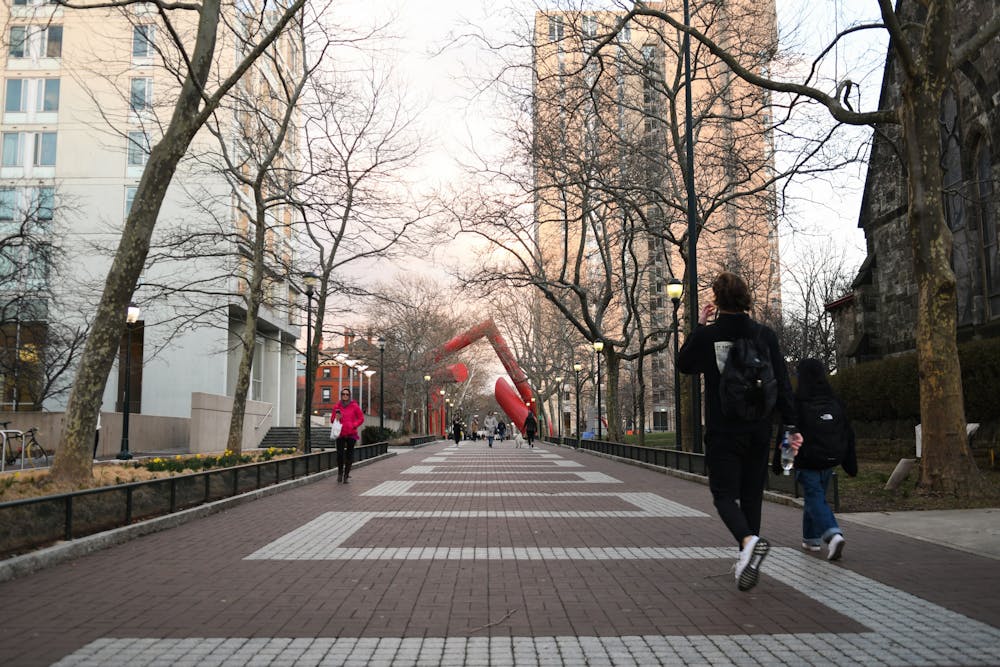As most of you are aware, Penn requires students to live on campus for the first two years of undergraduate study. While some students choose to remain in the dorms for the remainder of their time at Penn, many upperclassmen opt for off-campus living arrangements. Whether these upperclassmen are living alone, with friends and teammates, or with complete strangers, their overall social interactions tend to diminish rapidly.
Although forming deep connections and tight-knit groups is a hallmark of the college experience, spontaneous experiences help cultivate individuals as social beings. As an institution, Penn must do more to incentivize campus involvement for its upperclassmen.
Not only is Penn a world-class institution that offers a plethora of academic resources, it is home to roughly 10,000 undergraduates who provide remarkable socioeconomic and cultural diversity. Many students decided to attend a university like Penn to broaden their horizons, yet they are depriving themselves of countless opportunities to do just that.
A study conducted by Alexander W. Astin explored the connection between campus involvement and students’ sense of belonging. Utilizing a longitudinal design, in which students were surveyed nationwide about their levels of campus engagement and emotional connections to their institutions, Astin found a positive correlation between the degree of involvement in extracurricular activities and the sense of belonging that a student felt at a respective university.
The study also found that students who took it upon themselves to undergo independent research and studies felt a deeper connection to their academic performance and reported higher grade point averages in the aggregate. Finding new avenues to communicate with others in a productive manner fosters growth on both the individual and campus level, allowing an institution like Penn to act as a social catalyst for its student population.
The objective of this piece is not to discredit Penn’s ability to foster lifelong friendships and an incredible college experience. Even with the residual effects of the COVID-19 pandemic still impacting our personal lives, Penn is still known as "the Social Ivy". But with the help of our administration and faculty, we can do more to elevate the campus experience for upperclassmen.
One’s experiential curiosity and social integration does not need to end after sophomore year. Our upperclassmen have so much left to offer and receive from an immersive campus experience at one of America’s premier institutions. Granted, Penn is located in one of the country’s most populated cities, making it potentially challenging for students to balance the downtown excursions with campus life. However, I would argue that the urban experience enhances our ability to interact with different cultures and ideologies that we can, in turn, bring back to the Penn ecosystem.
Incentivizing campus involvement may seem like an uphill battle at the present moment, but I am confident that most students at Penn are not actively disengaging themselves. Rather, it is likely a direct byproduct of students’ off-campus living arrangements coupled with increased physical and psychological distance from the campus center.
There are countless tactics and strategies to resolve this phenomenon. A few potential solutions that would be relatively simple to implement include specialized upperclassmen events, condensed scheduling that promotes longer stays on campus grounds, community partnership initiatives, and an off-campus student advisory board that addresses the needs of students living on their own. While it may take years for Penn to reap the benefits of these initiatives, it is nevertheless an endeavor that would provide immense upside for the student community. Life at Penn does not stop beyond Locust Walk, so our engagement with Penn should not either.
AIDAN NASH is a College senior studying philosophy, politics, and economics from Philadelphia. His email is aidan01@sas.upenn.edu.









